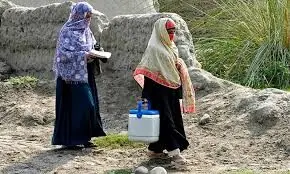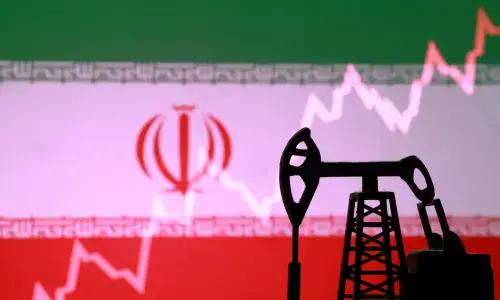WASHINGTON: The new government in Pakistan with a clear majority in parliament also presents an opportunity for promoting the Afghan peace process, a senior US official said on Thursday.
James Dobbins, US special envoy for Afghanistan and Pakistan, also told a Senate hearing that the United States would reach an agreement with Afghanistan for keeping some American troops there after 2014 when the Nato combat missions ended.
“Without an agreement on our presence in Afghanistan, we would not remain. But we do not believe that that's the likely outcome of these negotiations,” he said.
Ambassador Dobbins acknowledged that Pakistan had recently become more cooperative in advancing the Afghan reconciliation process and hoped that this cooperation would increase.
“We do see an opportunity with the new civilian government with a clear mandate and majority in parliament,” he told the Senate Foreign Relations Committee.
Earlier, the committee’s Chairman Senator Robert Menendez asked him to explain if the United States and Pakistan could work together to advance the process after 2014.
The US envoy said that although Pakistan’s own internal security problems were “more acute than that of Afghanistan”, Islamabad had been cooperating with the international community in bringing peace to Kabul.
Mr Dobbins also said that terrorist attacks in Pakistan had increased recently and more civilians had been killed in these attacks than in Afghanistan.
This, he noted, had forced Pakistan to conduct “very significant military operations” against the militants and the United States supported those efforts.
“Unfortunately not against militants that are operating in Afghanistan but against the militants that are operating in Pakistan,” he said, but “they do have a substantive proportion of their military committed to counter-insurgency operations” along the Afghan border.
“This is a continued area of dialogue”, said the US envoy, confirming media reports that Washington wanted Islamabad to expand its military operations to include the Afghan militants as well.
Emphasising the need for combating both Afghan and Pakistani Taliban, Mr Dobbins said that the two groups worked closely with each other, killing innocent civilians in both countries.
“The insurgency has effective sanctuary and draws strength from that sanctuary in their operations in Afghanistan,” he said.
Similarly, the terrorists operating inside Pakistan were “closely linked to those operating in Afghanistan, and we keep stressing to the government of Afghanistan” to act against them as well, Mr Dobbins said.
The US envoy said that it was difficult to “distinguish between benign and malign militants” as the end objective of both the groups was to destabilise both Afghanistan and Pakistan.
“And I think that recognition is beginning to synch in” in both the countries, he said.
Mr Dobbins said that Secretary of State John Kerry would visit Pakistan “some time soon” and discuss these issues directly with the new Pakistani leaders.
The envoy noted that he had already visited Islamabad twice since June to meet the country’s new leaders.

































